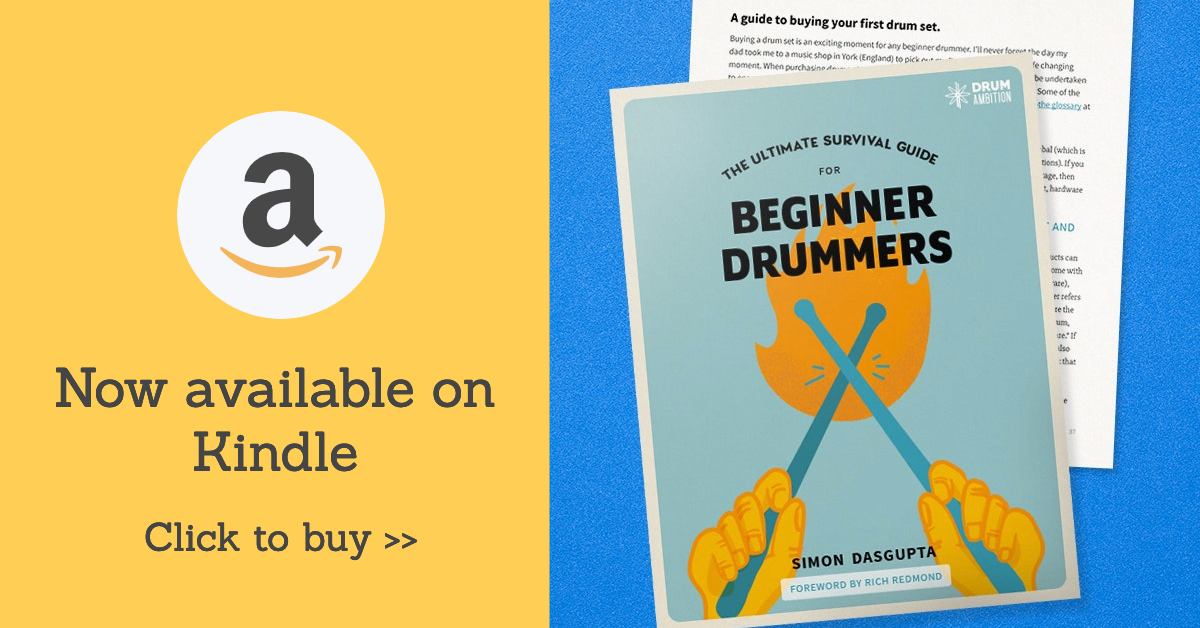The 2014 movie drama Whiplash is an Oscar-winning worldwide hit. Based upon the relentless pursuit of a young aspiring college musician (Miles Teller) and his battle against an overbearing and outright mean music instructor (J.K. Simmons).
Seven years after its initial release, the movie is starting to appear once again on popular streaming channels, and we thought it would be a good idea to revisit this article. The movie was met with mixed opinions throughout the drumming community.
Helpful related articles:
10 bad drumming habits and how to fix them.
One video every beginner drummer should watch.
Inspiring or off-putting?
On the one hand, the message is undeniably inspiring; one young man's determination to be the best drummer he can in the face of adversity that is, at times, uncomfortable to watch. On the other hand, the film was dramatized so that the plot scenarios ranged from unlikely to outright unrealistic - not unusual for motion pictures, one might argue. The critics were up in arms, with great drummers like Peter Erskine chiming in on details and scenarios that would most likely not happen in a collegiate jazz education setting. Social media buzzed, and it seemed that every drummer in the world had a valid opinion to share.
Our main concern was that aspiring drummers would be put off learning by our unfortunate protagonist's experiences. The feedback we received from many students, however, suggested otherwise. Most found it inspiring and entertaining, so in that respect, one must give full marks to Hollywood.
Blood on the snare drum. A badge of honor or a lapse in technique?
The one myth we would like to address, though, is the blood on the snare drum scene. And why this particular nuance in a film that literally has dozens of talking points? Since its original release, we were amazed to see pictures on Instagram and Facebook of snare drums and drumsticks covered in blood. As a music education company, we find it quite uncomfortable. To be fair to Whiplash, such images have been about long before the movie's conception; the film writers merely jumped on the bandwagon.
Should playing the drums be painful?
Learning the drums should not hurt you. When you take drum lessons, you will be shown how holding the sticks in a light, and relaxed manner is the key to musically dynamic, controlled, and comfortable playing. The key to speed and power on the drum set depends on this, not holding the sticks tight and hitting the drums and cymbals as hard as possible. Speed and power are a byproduct of control. The scene where blood is oozing due to playing faster and faster is a myth. One would assume that if the student drummer had already attained a place at music college, basic principles like this would have been learned.
As a beginner drummer, if you are regularly bleeding, breaking drum sticks, or cracking cymbals, this is a sure sign that your technique needs work. In this free video, we give you guidance on how to hold the sticks that will save you all but a few occasional calluses and spare you from the expense of repeatedly replacing sticks, drum heads, and cymbals. There are, of course, times when you might bleed if you accidentally hit a cuticle on a cymbal or some other freak occurrence, but this really should be the absolute exception.
The last word.
It's certainly not our intention to chime in on the good, the bad, and the downright ugly of the movie, as there are enough opinions online should you wish to review them. (Can you imagine a classroom full of fighter pilots discussing the merits of Top Gun?). We see Whiplash as it is - an entertaining movie drama based loosely on reality, taking a few liberties in the process but generally delivering a good story. There is also the undeniable fact that there is some great music and drumming in the movie, although good luck identifying the actual musicians in the movie credits.
The movie was a huge success from the feedback we received from drummers and non-drummers alike. It raised the drumming profile and gave the general public some insight into how challenging our instrument can be at that level. It may be far-fetched and pushing the boundaries of realism, but it was undeniably entertaining.
We are here to help.
If you have any questions about this article, please feel free to email [email protected].


